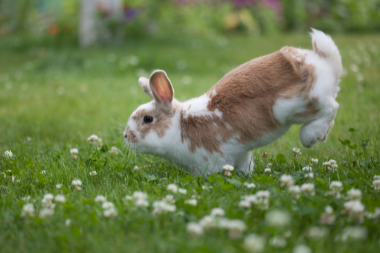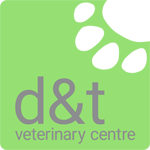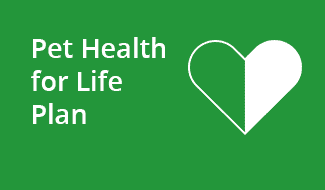Neutering of both male and female rabbits is strongly recommended unless you wish to breed from your pet. Rabbits become sexually mature between 4 months (in smaller breeds) and 6 to 9 months (in larger breeds).
It is recommended that young rabbits are separated into single sex groups at 4 months of age.
What is neutering?
Neutering is a surgical procedure performed under general anaesthesia to remove part or all of an animal’s reproductive organs, preventing them from reproducing. In males, it is called castration and in females, spaying. We know that neutering provides significant benefits for you and your pet and is directly associated with helping pets to live happier, healthier lives. Book your appointment today at D&T Veterinary Centre in Rugeley.
Rabbit neutering in Rugeley
Rabbits are usually neutered around four months of age. Castration involves removing the testes of a male rabbit, and spaying is the removal of the uterus and ovaries of a female. It is worth noting that sperm can reside in the genital tract for up to six weeks, so it’s best to keep your rabbit away from un-neutered females during this time. Rabbits are extremely social creatures; neutering helps pair or bond rabbits, making them much happier.
Rabbit neutering benefits:
- Eliminates prostatic and testicular cancer
- Helps owners to litter train rabbits
- Reduces aggressive behaviours, especially in males
- Eliminates womb infections in females
- Eliminates uterine cancer in females, the commonest cancer in rabbits
- No risk of unwanted pregnancies
- Reduces spraying
- Promotes successful bonding of rabbits
Should I let my rabbit have one litter before spaying her?
This happens to be a common question, and there are no known health benefits to letting your rabbit have a litter; this is also the same for dogs and cats.
When to castrate male rabbits
Breeding is prevented by castration of male rabbits at about 5-6 months of age (once the testicles have descended).
When to spay female rabbits
Female rabbits should be spayed at around six months of age.
Side effects of neutering
Neutered rabbits are more prone to obesity as they grow older, so care must be taken not to allow overeating.
General anaesthesia
Your pet requires a general anaesthetic for neutering; here at (practice name), we have measures in place to ensure their safety during the procedure. A dedicated Registered Veterinary Nurse (RVN) will monitor your pet throughout their surgery and recovery. Although rabbits are deemed to be a ‘high risk’ under anaesthesia, the health benefits alone far outweigh the risks; over the years, rabbit anaesthesia has become much safer. Risk levels of anaesthesia increase with a pet’s age, certain breeds and if your pet has any underlying health conditions. Your pet will receive a premedication to relax them and will also receive two types of pain relief. Rest assured the D&T Veterinary Centre team will be with your pet every step of the way.
Your pet will stay the day with us
On admission, we will discuss the procedure and go through the consent form. Please note we must gain a signature from the registered owner (over 18) or authorised agent on the consent form. Your dog, cat or rabbit will be admitted as a ‘day patient’, and they will be discharged later that day once our team are happy with how your pet has recovered. During your pet’s discharge appointment, the team will go through everything you need to know about caring for your pet after their surgery and their pain relief medication. We are always at the end of the telephone for you and your pet, so please contact us if you have any further questions once you have your pet settled back at home.
Please bring your rabbit in a secure box or basket with a blanket that smells of home; we advise rabbits are brought along with their companions to reduce the stress of separation between a bonded pair. Bringing your rabbits lunch is also preferable. We require rabbits to eat relatively quickly after a general anaesthetic; having their favourite foods on hand speeds up their recovery time so we can have your rabbit back home with you as soon as possible.
D&T Veterinary Pet Health for Life Plan members can claim a 10% discount off any neutering procedure. Our Pet Health for Life Plan offers preventative health, and you could be saving each year on what you spend on your pet treatment wise. Click here to find out more.








